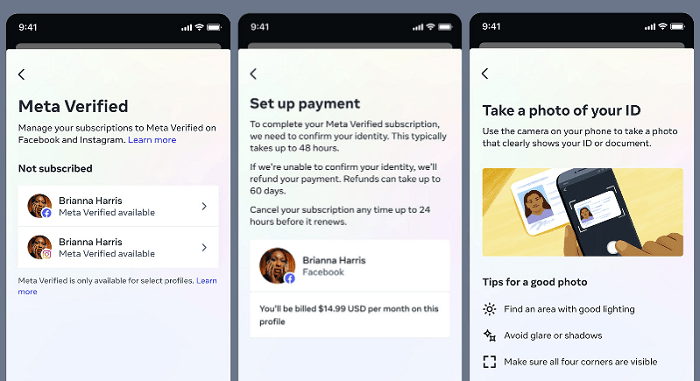Local Memo: Google Search Labs Experiment to Bring Live Leads to Auto Shops & Nail Salons
Local Memo: Google Announces Generative AI in Workspace

Local Memo: Google Announces Generative AI in Workspace
In this week’s update, learn about generative AI in Google Workspace; the release of GPT-4; the U.S. launch of Meta Verified; threats to TikTok’s U.S. presence; Google’s “Not Visible” bug; and the rollout of the Google March update.Google Announces Generative AI in Workspace
Google has announced that it will bring generative AI to Google Workspace, the suite of tools for businesses that includes Gmail, Docs, Sheets, Slides, Calendar, Meet, and other components. The company’s announcement reminds us that Workspace has already incorporated AI in several areas, such as Smart Reply and Smart Compose, tools that auto-suggest email responses and phrases while writing. In fact, Google launched a summarization tool last year that, although it didn’t receive much fanfare at the time, anticipates at least some of the functionality generative AI will bring. Trusted testers will be the first to experience the new functionality, which will appear initially in Gmail and Docs. Google plans a fairly aggressive rollout, however, with more users getting access and several more supported Workspace components being added during the course of this year. The announcement hints at auto-generated content in Slides, going “from raw data to insights” in Sheets, and several other features. Google has also published a prohibited use policy, forbidding the use of generative AI for dangerous or illegal activities; for creating content intended to misrepresent or mislead; or for creating sexually explicit content. In related news, Google has also launched the PaLM API, which provides developers with access to the company’s large language models, along with a new prototyping tool called MakerSuite.GPT-4 Released
As previewed in this space last week, OpenAI has released GPT-4, the latest version of the generative AI model that powers ChatGPT and the Bing chatbot. The updated model is reported to be faster and more accurate than its predecessor, GPT-3.5, and to be more effective in preventing hallucinations and maintaining guardrails. More significantly, GPT-4 introduces multimodality to the language model. Though it was rumored that the release might allow for a range of multimedia inputs and outputs, in reality GPT-4 is restricted to image and text inputs and text-only outputs. Shortly after OpenAI announced GPT-4, Bing released its own statement indicating that the search engine had already incorporated “an early version” of the update about five weeks previously. GPT-4 has achieved some impressive performance milestones – for instance, passing a simulated bar exam in the top 10% of test takers, whereas GPT-3.5 passed in the bottom 10%.Meta Verified Goes Live in U.S.
Shortly after the program launched in trial form in Australia and New Zealand, Meta is making Meta Verified available to all U.S. users. For $11.99/month on the web or $14.99/month when purchased through the Facebook app (at a higher price due to app store fees), users with personal accounts will receive a verification badge on Facebook or Instagram, dedicated identity protection and account support, and access to some exclusive features such as stickers for Reels and Stories. Users must purchase separate subscriptions in order to get verified on both Facebook and Instagram. Meta Verified is not yet available to businesses.
Courtesy Meta / Social Media Today
Will the U.S. Ban TikTok?
With TikTok already banned on U.S. government devices (and those in Canada and EU) due to concerns about China’s potential access to sensitive information, a full U.S. ban of the app has re-entered the realm of possibility. Tensions have grown amid the ongoing conflict in Ukraine as well as the controversial appearance of Chinese spy balloons over U.S. soil. TikTok’s leadership has been under pressure to divest from its Chinese-owned parent company, ByteDance Ltd., in order to avoid a full ban, a move that the company is now said to be contemplating seriously. Amidst this threat, TikTok is taking steps to emphasize its value to U.S. businesses with a new “TikTok Sparks Good” docu-series, highlighting entrepreneurs who were able to launch and promote their new businesses using the app.Google “Not Visible” Bug Affects Many Businesses
A bug affecting multiple businesses is causing notices to appear in the Search interface for Google Business Profiles indicating that “your business is not visible to customers.” However, listings for the businesses impacted by the bug have not been suspended and are in fact still visible in the public interface. The messaging seems to indicate erroneously that the business is in the process of being verified. Apparently, listings can still be updated while in this state and updates are going live. Google is reportedly aware of the issue with, as yet, no ETA for a fix.
Courtesy Garrison Agency / Search Engine Roundtable
Google Rolls Out March Core Update
Google has released the latest update to its search algorithm, the March 2023 Core Update. This is the first core update of 2023, with the most recent previous update occurring in September of last year. It will roll out over a two-week period. Google has previously offered advice for SEOs whose sites are impacted by a core update, focused mostly on ensuring that a site publishes useful original content. The other major update this year was the latest iteration of the Product Reviews Update, which rolled out in February.Subscribe to Local Memo!
Signup to receive Local memo updates and the latest on localized marketing, delivered weekly to your inbox.




